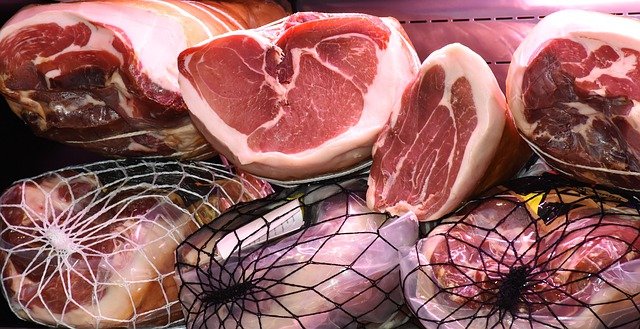• Senators Franklin Drilon, Francis Pangilinan and Cynthia Villar will file a joint resolution seeking to revoke an executive order which reduces import duties on meat for one year
•The power delegated to the President may, under the Customs Modernization and Tariff Act, be withdrawn or terminated by Congress through a joint resolution, according to Drilon
• EO 128, not the African Swine Fever, “will kill the local hog industry”, Drilon said
Senators Franklin Drilon, Francis Pangilinan, and Cynthia Villar will file a joint resolution to revoke an executive order (EO) temporarily reducing import duties on fresh, chilled, or frozen swine meat for one year.
EO 128, signed last April 7 by President Rodrigo Duterte, can be revoked through a joint resolution from Congress, according to Drilon.
READ: Duterte signs EO lowering tariff for pork imports
“By law, the authority of the President to fix tariff rates while Congress is not in session can be withdrawn or revoked by virtue of a joint resolution,” the lawmaker said in a statement.
Drilon affirmed that Republic Act (RA) No. 10863, or the Customs Modernization and Tariff Act (CMTA), which is the basis for EO 128, allows the president to increase, reduce or remove existing rates of import duty “while Congress is not in session.”
He pointed out, however, that Section 1608 (f) of RA 10863 provides that “the power herein delegated to the President may be withdrawn or terminated by Congress through a joint resolution.”
EO 128, which was signed while Congress was in recces, reduces the most-favored nation (MFN) tariff rate on pork imports within the minimum access volume (MAV) from the current 30% to 5% for the first three months upon effectivity of the order, and to 10% for the fourth to 12th month. Pork imports outside the MAV will be slapped a lower tariff of 15% for the next three months and 20% for the succeeding nine months from the current 40%.
According to EO 128, there is “an urgent need to temporarily reduce” the MFN tariff rates on fresh, chilled or frozen meat of swine to address the African Swine Fever (ASF) outbreak’s impact on pork meat supply and price in the Philippines.
But Drilon said it is EO 128, not ASF, that “will kill the local hog industry.”
“The irrational and drastic decision to increase the minimum access volume or MAV serves as a final ‘nail in the coffin’ of the local hog industry,” Drilon noted, adding that it “completely disregarded the livelihood of thousands of local hog growers.”
The lawmaker said the local hog raisers have “suffered a double blow in the last two weeks and it is the duty of Congress to stand up for them.”
“The small hog raisers will not be able to fight the big importers of meat products,” Drilon said.
He reiterated that the drastic decrease in tariffs of pork products could also result in billions of pesos in lost government revenue.
Drilon also earlier questioned the timing of submission of the President’s proposal to Congress to increase the MAV for pork imports to 350,000 metric tons (mt) from 54,000 mt. The proposal was submitted on March 26, the last day of Congress’ session.
Section 6 of RA 8178, or the Agricultural Tariffication Act, provides that “in case of shortages or abnormal price increases in agricultural products, whose quantitative restrictions are lifted under this Act, the President may propose to Congress, revisions, modifications or adjustments of the Minimum Access Volume (MAV): Provided, however, that in the event Congress fails to act after fifteen (15) days from receipt of the proposal, the same shall be deemed approved.”
Drilon maintained that the power to revise, modify or adjust the MAV is a legislative function.
He said the proposal should have been submitted while Congress was in session in order for Congress to determine the necessary adjustments. He added that the President could have asked Congress for a special session to discuss the proposal.





